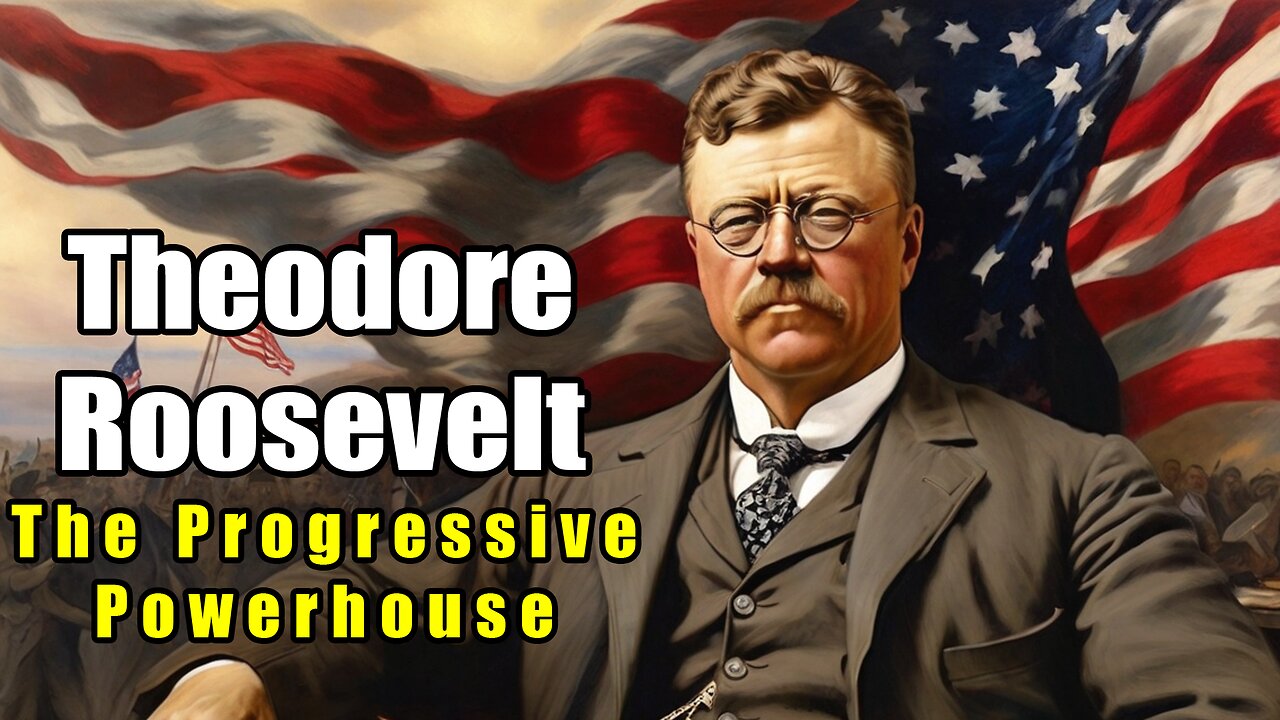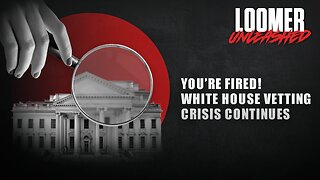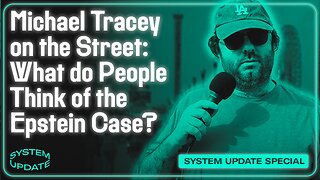Premium Only Content

Theodore Roosevelt - The Progressive Powerhouse (1858 - 1919)
Theodore Roosevelt (1858-1919) was the 26th President of the United States, serving from 1901 to 1909. He was a charismatic and energetic leader who played a significant role in shaping the Progressive Era in American politics. Here is an overview of Theodore Roosevelt's life and his impact as a "Progressive Powerhouse":
Early Life and Political Beginnings:
Birth and Family:
Theodore Roosevelt was born on October 27, 1858, in New York City. He came from a wealthy and influential family.
Health Struggles:
Roosevelt faced health challenges, including severe asthma, which he overcame through disciplined physical exercise.
Education and Military Service:
He attended Harvard University and later served in the New York State Assembly. Roosevelt's military service in the Spanish-American War earned him acclaim as a Rough Rider.
Governor of New York:
Political Ascent:
Roosevelt's reputation as a reformer and his success as a war hero catapulted him into the governorship of New York in 1898.
Progressive Reforms:
As governor, Roosevelt implemented various progressive reforms, including trust-busting and regulatory measures.
Vice Presidency and Ascension to the Presidency:
Vice Presidency (1901):
Roosevelt became Vice President in 1901 under President William McKinley but assumed the presidency later that year after McKinley's assassination.
Square Deal:
Roosevelt's domestic policy, known as the "Square Deal," aimed at addressing the issues of big business, labor, and consumer protection.
Progressive Reforms:
Antitrust Actions:
Roosevelt vigorously enforced antitrust laws, earning him a reputation as a trust-buster. Notable cases include the dissolution of the Northern Securities Company and the prosecution of Standard Oil.
Consumer Protection:
Roosevelt advocated for consumer protection, leading to the passage of the Pure Food and Drug Act and the Meat Inspection Act in 1906.
Conservation:
Roosevelt was a strong advocate for conservation. He expanded the National Parks system, created the United States Forest Service, and set aside vast areas for public use.
Foreign Policy and Nobel Peace Prize:
Panama Canal:
Roosevelt championed the construction of the Panama Canal, a strategic waterway connecting the Atlantic and Pacific Oceans.
Russo-Japanese War and Nobel Peace Prize (1906):
Roosevelt played a key role in mediating the end of the Russo-Japanese War, earning him the Nobel Peace Prize in 1906.
Post-Presidential Years:
African Safari:
After leaving the presidency, Roosevelt embarked on an African safari, documented in his book "African Game Trails."
Bull Moose Party (1912):
Roosevelt ran for president again in 1912 as the Progressive Party candidate, often called the "Bull Moose" Party. Despite not winning, he garnered significant support.
Legacy and Death:
Legacy as a Progressive Icon:
Theodore Roosevelt's legacy is synonymous with progressivism. His policies and leadership style left an indelible mark on American politics.
Death (1919):
Theodore Roosevelt died on January 6, 1919, at the age of 60. His death was a significant loss, and his legacy continued to influence American political thought.
Theodore Roosevelt's presidency marked a period of progressive reforms, challenging the power of big corporations and advocating for social justice and conservation. His leadership style, often described as the "bully pulpit," emphasized the president's role in championing the public interest. Roosevelt's legacy as a Progressive Powerhouse endures, and he remains an iconic figure in American history.
-
 LIVE
LIVE
TimcastIRL
1 hour agoNew DOCS PROVE Obama Hillary CONSPIRACY To SABOTAGE Trump Admin | Timcast IRL
24,711 watching -
 LIVE
LIVE
Laura Loomer
2 hours agoEP136: YOU'RE FIRED! White House Vetting Crisis Continues
493 watching -
 21:53
21:53
Glenn Greenwald
4 hours agoMichael Tracey on the Street: What Do People Think of the Epstein Case?
70.2K42 -
 LIVE
LIVE
DamnDanieI
1 hour agoKill First, Loot Later – OTG Live
292 watching -
 LIVE
LIVE
SpartakusLIVE
2 hours agoDuos w/ @GloryJean || #1 Masculine Muscle MASS sears YOUR retinas with MIND BENDING content
143 watching -
 56:41
56:41
Donald Trump Jr.
5 hours agoLies, Leaks, and Lawfare: Censorship Corruption Exposed | TRIGGERED Ep.263
98.9K102 -
 1:26:13
1:26:13
Mally_Mouse
4 hours agoLet's Hang!! -- P.O. Box & Chill!
1.54K -
 1:02:37
1:02:37
BonginoReport
5 hours agoKamala Teases Book About Dumpster Fire Campaign - Nightly Scroll w/ Hayley Caronia (Ep.102)
47.3K38 -
 35:05
35:05
Stephen Gardner
4 hours ago🔥Obama will be FORCED to Testify in Trump trial?
11.1K33 -
 9:08
9:08
Tundra Tactical
2 hours agoTundra Tactical Political Memes Review!
4.46K